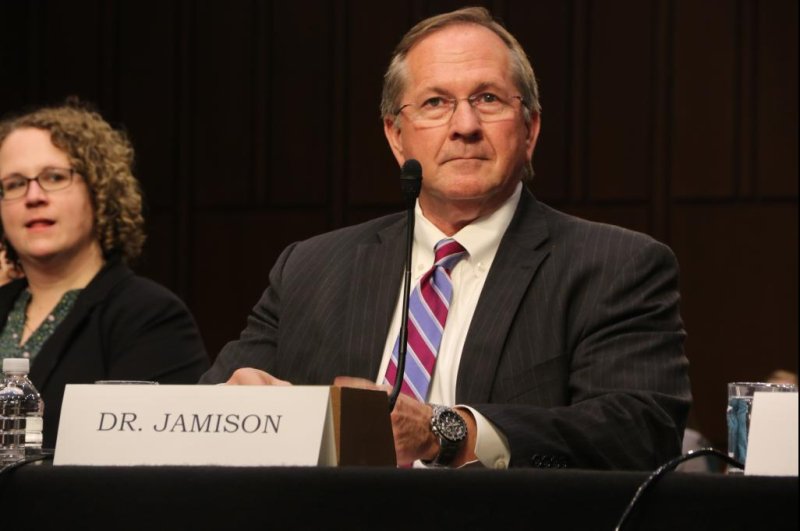Mark Jamison, visiting scholar at American Enterprise Institute, said duplication of efforts and funds is "wasteful at best." Photo by Bryan Wood/Medill News Service
March 12 (UPI) -- WASHINGTON -- The Federal Communications Commission is "overbuilding" rural United States in its efforts to improve broadband access in states like North Dakota and South Dakota, according to telecommunications companies in rural service areas who testified Tuesday before the Senate Committee on Commerce, Science and Transportation.
Before the FCC initiates the second phase of its Connect America Fund, which will provide $2 billion over the next 10 years to expand Internet services available in rural areas, the Senate committee, which has oversight of the agency, met to discuss past failures to regulate duplicated funds.
"I've personally seen competitors in our service areas that have received money from several overlapping government agencies and FCC grant programs even though there's already been significant attention paid there," said Justin Forde, senior director of government relations at Midcontinent Communications, a regional cable provider.
The FCC began targeting rural areas for broadband expansion seven years ago under a series of government programs that provided subsidies and grants to companies there.
"High-speed broadband services are vital to America's communities. Broadband connectivity provides opportunity for advancements in healthcare, education and economic development," said Sen. John Thune, R-S.D., chairman of the communications and Internet subcommittee. "Unfortunately, access to these services are often undermined by where you live."
The FCC's government-backed programs have increased Internet access in rural states. Between 2007 and 2016, the number of rural Americans with broadband Internet connection increased 28 percent, according to a 2017 Pew report on the rural and urban digital divide.
But experts who testified at Tuesday's hearing say there's been an "overbuilding" of service areas in rural areas due to a lack of efficiency in FCC regulation.
One expert from the American Enterprise Institute explained at Tuesday's hearing that infrastructure plans have been duplicated in rural America because government agencies have failed to communicate their funding efforts.
"This duplication can be wasteful at best, and perhaps even destructive, when the government is subsidizing one of the providers," said Mark Jamison, a visiting scholar at AEI. "Broadband mapping is central to this effort."
A telecommunications consultant and former FCC official agreed that government agencies need to maximize funding efficiency through service mapping and inter-agency communication.
"I think it's important that state agencies share real-time information so that additional government funds don't go to those areas just because they haven't been served right now," said Carol Mattey, a principal at Mattey Consulting.
Between 2012 and 2016, the FCC committed more than $21 billion to "high-cost programming," which covers the rural subsidies for broadband expansion.
As the conversation moves forward, it's important that FCC funding for rural America is used purposefully and efficiently, experts and politicians alike said at Tuesday's hearing.
"Modes of communication are changing," Mattey said. "It's time that we have a thoughtful conversation about new ways to ensure that universal service fund remains on a solid footing."















